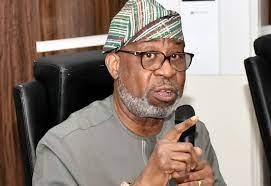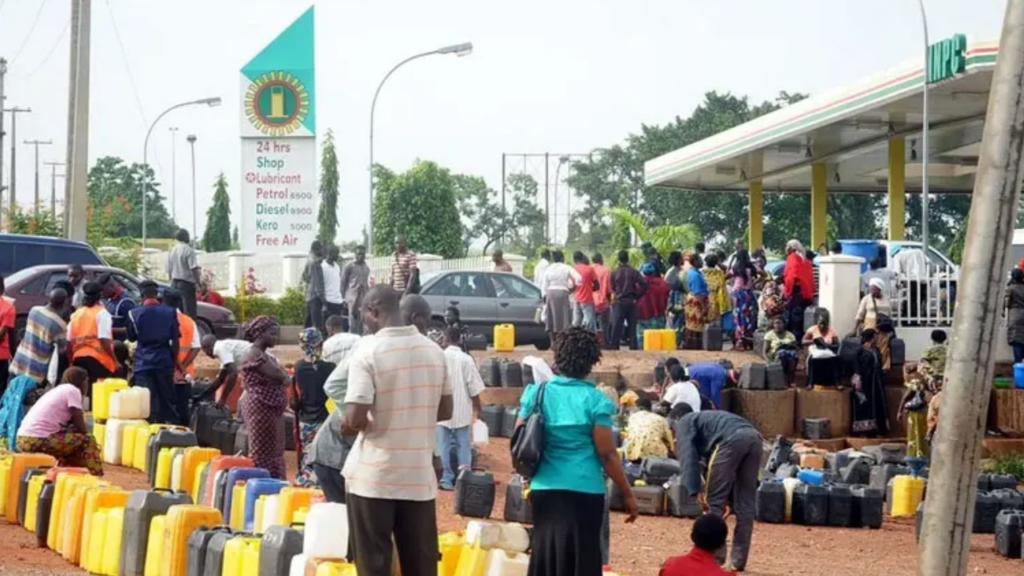Solid Minerals
Market worries causes sink in Iron Ore prices

HONG KONG — Iron-ore prices sank to below US$100 per metric ton on Monday for the first time in nearly two years, driven down by market worries that demand from China is being outpaced by increasing output of the steelmaking raw material from international miners.
Australian exporters of iron ore—the cheapest in the world—still have headroom for exports at current prices, but analysts say some may be need to rethink planned expansions if the price continues to slide.
The Steel Index’s benchmark price for ore with 62% iron content at China’s Tianjin port was $98.5 a ton on Monday, down 2.2% on Friday’s level, with the record high of above $190 a ton reached in early 2011 a distant memory.
“It certainly creates a big headwind for the iron ore mining companies,” said Jeff Largey, London-based head of metals and mining at Macquarie Research. “In the near term, they will remain under pressure.”
Australian mining companies like BHP Billiton Ltd BHP.AU -1.71% , Rio Tinto RIO.LN -1.73% PLC and Fortescue Metals Group Ltd. FMG.AU -4.59% have poured billions of dollars into new mining or existing operations over the past few years as the value of industrial commodities soared to record levels in response to robust demand from China. The country is the world’s largest buyer of iron ore, accounting for more than 60% of seaborne trade.
Rio Tinto already has committed to boosting annual iron-ore output in Australia by more than 20% over the next four years in a bet Chinese demand will stay strong. Fortescue Metals and BHP also building their production. Last week, Rio Tinto said its iron ore mining operations in the Pilbara, Western Australia, reached a production rate of 290 million metric tons a year, two months ahead of schedule.
Fortescue Metals recently hit its target of producing 155 million tons of iron ore on an annual basis, and thinks it could boost exports by a further 13% by mining more efficiently.
Shares in BHP were down 1.7% at A$37.08, Fortescue fell 4.6% to A$4.37 and Rio Tinto lost 2.8% to A$60.10 at the end of trading on Monday in Sydney.
“If prices dipped below $80 per ton, we would see some marginal supply cutbacks, but the bulk of Australian iron ore production is still profitable, down to $50 per ton,” said Mark Pervan, an Australia-based analyst with ANZ Research.
“That said, an iron ore price below $80 per ton, would halt or delay most expansion plans creating possible export supply tightness in two [to] three years’ time,” he said, adding that he expected prices will bounce back by $10-$15 a ton in the months ahead.
Citigroup has said a continuing recovery in China’s steel production as well a slower rate of supply growth in the second half could hold iron ore around $108 in 2014, although in the long term it remains bearish, forecasting a price of $80 a ton in 2016.
Instead of bigger and cheaper producers of iron ore in Australia, the heat more immediately is likely to be on Chinese ore producers, who may have to cut back on their own output at ore prices between $90-$100 per metric ton, said Paul Bloxham, HSBC’s HSBA.LN -0.16% chief economist in Australia and New Zealand.
If such cutbacks kicked in, it would support prices because of lower supplies, he said.
However, reductions by Chinese producers could easily be offset by higher supplies from India, which was the third-largest supplier after Australia and Brazil until two years ago, when legal rulings closed mines and slashed exports.
India’s Supreme Court recently eased a mining ban in two of the biggest producing provinces—Goa and Karnataka, although the outlook for increased exports have been clouded by a separate order issued Friday to shut 26 mines in Orissa state, another leading producer.
Industry officials see these measures as temporary hurdles as they expect India’s new industry-friendly government will try to remove obstacles to iron ore production and exports, although it is an open question how quickly this will happen.
“We do see Indian iron ore exports picking up, but they may not reach the level as three years ago,” said Mr. Largey of Macquarie Research.
– WALLSTREET JOURNAL
Business
Nigeria set to boost Naira value and foreign reserve with local gold production, as Tinubu receives gold bar
IN a significant move to strengthen Nigeria’s economy, President Bola Tinubu received a symbolic gold bar on Sunday from the Minister of Solid Minerals Development, Dele Alake.
This gesture marks the commencement of the National Gold Purchase Program (NGPP), aimed at boosting the naira’s value and enhancing the country’s foreign reserves.
Minister Alake expressed gratitude to President Tinubu for his support of reforms in the solid minerals sector.
He highlighted that the NGPP, which involves sourcing gold from artisanal and small-scale miners and refining it to meet the London Bullion Market Association’s Good Delivery Standard, will substantially contribute to Nigeria’s economic stability.
Alake stated “This initiative will significantly increase our foreign reserves and strengthen the naira. The refined gold will be supplied to the Central Bank of Nigeria, marking a crucial step in our economic strategy.”
The presentation also underscored the first commercial transaction under the NGPP, establishing a centralized gold purchasing system that integrates small-scale miners, cooperatives, and production units across the nation.
This program is expected to provide a structured market for gold, fostering economic growth and stability.
He said, “The successful completion of the first commercial transaction clearly demonstrates the National Gold Purchase Program’s effectiveness. It has increased the nation’s foreign reserves assets and shown that using the Nigerian Naira to purchase a liquid asset traded in United States Dollars, such as gold, is a viable strategy. This transaction has also underscored the potential of the National Gold Purchase Program to enhance fiscal and monetary stability.”
Alake added that the initial commercial transaction under the program resulted in a +US$5 million boost in Nigeria’s foreign reserve assets.
The transaction involved refining over 70 kilograms of gold to meet the London Bullion Market quality standard and aggregating locally mined gold, thereby infusing approximately NGN6 billion into the rural economy.
President Tinubu expressed appreciation for the Ministry’s accomplishment in advancing the government’s goal of economic diversification by acknowledging and displaying the symbolic gold bar
Solid Minerals
FG Fingers Foreigners Sponsoring Banditry For Illegal Mining

The Nigerian Government has threatened to come down heavily on foreigners sponsoring bandictory as a way of sustaining illegal mining activities in parts of the country.
The warning was handed down in Abuja by Minister, Solid Minerals Development, Dr Oladele Alake, while receiving a delegation of the Nigeria-China Chamber of Mines led by its National President, Dr. Olugbenga Ajala.
Details of these were contained in a statement released by Head, Press & PR, Ministry of Solid Minerals Development, Alaba Balogun over the weekend.
The statement cited, Dr Alake, thus, “The government will come down firmly on these unscrupulous foreign operators sponsoring banditry to perpetrate illegal mining: let me use this medium to appeal through you to tell those sponsors to desist or face the full wrath of the law.”
According to Dr Alake, the Ministry is committed to establishing a multi-agency task force that will end the activities of illegal miners and their collaborators.
The Minster made it clear that the FG had given illegal miners a 30-day-ultimatum to legitimise their businesses, quit Nigeria or incur the wrath of the law.
According to him, this will help “to streamline and structure the Small-Scale Artisanal Miners for maximum yield to the Federal Government.”
The delegation paid a courtesy call on the Minsiter at the Ministry’s headquarters in Abuja.
Energy
Fuel Scarcity: Govt Yet to Increase Pump Prices – NMDPRA

By Edozie Obasi-Eze
Amidst heightening uncertainties in the domestic petroleum products market characterised by scarcity and irregular pricing, the Nigerian Midstream and Downstream Petroleum Regulatory Authority (NMDPRA) has declared that there’s no intention to review pump prices upwards.
This was contained in an advisory issued by General Manager, Corporate Communications, NMDPRA, Kimchi Apollo.
He stated that the Nigerian National Petroleum Corporation Limited (NNPCL) had imported PMS with current stock levels sufficient for 34 days.
In an attempt to address panic buying and speculations which have seen price of Premium Motor Spirit (PMS) oscillate between N180-N250 in the Lagos area, Apollo assured that there was enough quantity of the product in the country already.
He said, “Consequently, marketers and the general public are advised to avoid panic buying, diversion of products and hoarding.
“In keeping with the Authority’s responsibilities as outlined in the Petroleum Industry Act (PIA), the Authority assures the public that it would continue to monitor the supply and distribution of petroleum products nationwide, especially during this holiday season.”












